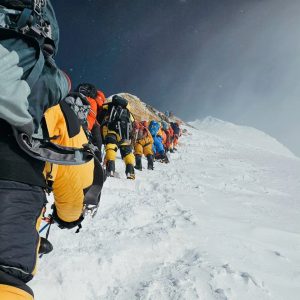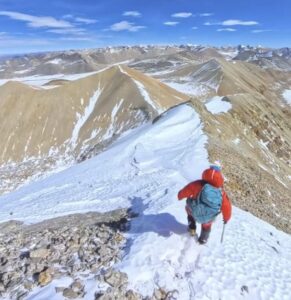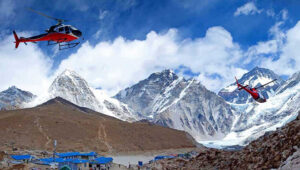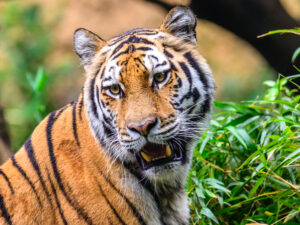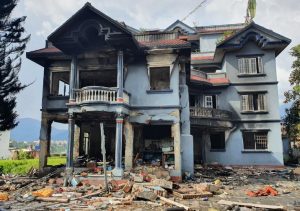A helicopter evacuated Mikel Inoriza of Spain from Jannu East’s Base Camp last week. The cause wasn’t a climbing accident or Acute Mountain Sickness, but dengue fever.
Some recent Manaslu climbers had symptoms too. It’s just the latest in a spate of problems from the unusually long and intense monsoon this year. Climbers on Manaslu, Dhaulagiri, and Everest had to abort their attempts because of frequent avalanches. Some have still not managed to get back to Kathmandu. Heavy snow has closed high mountain passes and some trails, and bad weather has grounded helicopters and planes. This has affected trekkers as well.

Distribution of dengue cases in Nepal between January and September 2022. Map: WHO
The current dengue fever outbreak first appeared in August and it is now in virtually all of Nepal, especially the Kathmandu Valley. Cases have also appeared in mountain areas, which is less common. Early cases prompted theories about a new strain of COVID, but soon researchers verified the presence of dengue.
How the long monsoon increased dengue
Aedes aegypti and Aedes albopictus mosquitoes are vectors of dengue fever. The disease is not new to Nepal, where it is now endemic. (See this report by the World Health Organization.) Authorities classify it as a “national concern”, but the outbreak this year is particularly bad because of the relentless rains. All the standing water created perfect breeding conditions for mosquitoes.
Patients infected with one type of the virus will not have immunity against the other three types. Multiple infections with the same type are also possible, The Nepali Times reported.

Aedes aegypti mosquito.
Symptoms include high fever, nausea, and most of all, severe body ache. Dengue is also known as the bone-breaking fever since that is how it can feel in acute cases, although the bones don’t actually break. Dengue is usually not lethal, except in cases with severe internal hemorrhaging.
The acute period usually lasts 7 to 12 days, but recovery is slow for the weakened patient. So far, there is no vaccine or remedy. Treatment only relieves symptoms. The good news is that nearly 90% of those afflicted do not develop symptoms at all. However, the next mosquito that bites them will then carry the disease.

Porters and donkeys struggle unsuccessfully through deep snow at Larke Pass earlier today. Photo: SummitClimb
Larke Pass still closed
Dengue aside, the situation in the mountain passes has not improved.
“Our Sherpas tried to cross [Larke Pass] today with donkeys but couldn’t, and had to return to Samagaon,” SummitClimb reported. “There was too much snow.”
The Sherpa were trying to carry loads out of Manaslu Base Camp. When climbers flew out of Base Camp, their gear remained behind “under tons of snow”, according to Sarah Strattan. Local teams are trying to retrieve it and forward it to Kathmandu.
Bad weather continues to delay others. Kristin Harila, Adriana Brownlee, and Gelje Sherpa are still waiting in Luckla for the third consecutive day. To save time, they plan to fly instead of trek to Cho Oyu’s south-side base camp. But the helicopters remain grounded because of the low ceiling.

Kristin Harila and Adriana Brownlee wait at a Lukla lodge for the fog to lift before heading to Cho Oyu.


